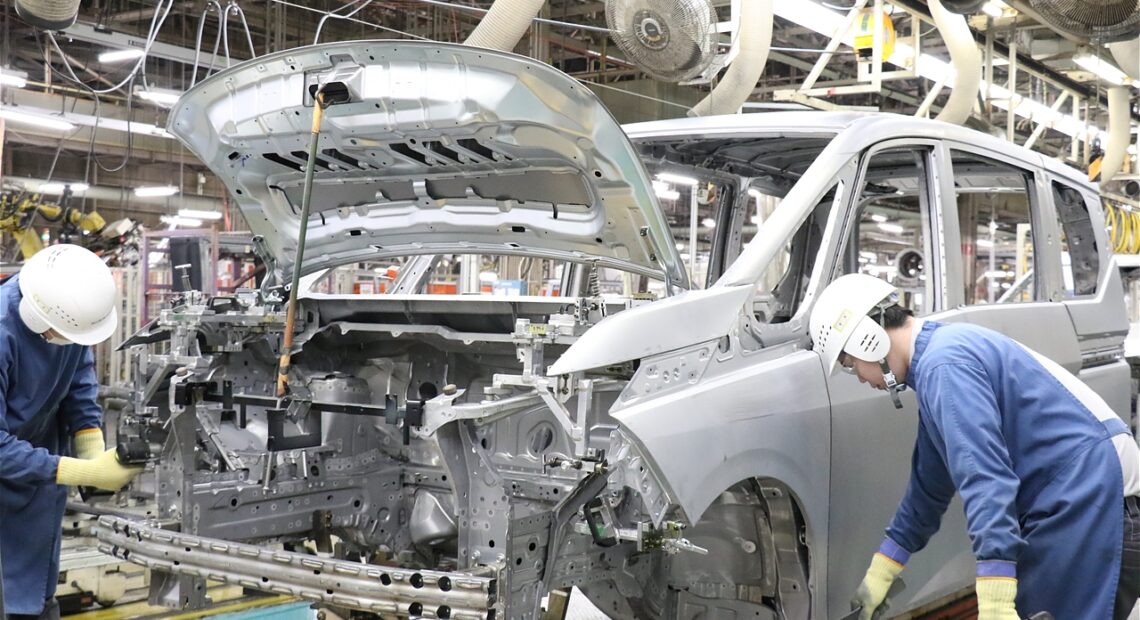Nissan to expand use of green steel in Japan

Aims for FY2025 use to be higher
Nissan Motor has unveiled plans to increase its use of low-CO2-emission steel in Japan dramatically. It aims to quintuple its use by fiscal year 2025 compared to fiscal year 2023.
This bold initiative is part of Nissan’s broader strategy to reduce carbon emissions and move towards carbon neutrality. To achieve its environmental goals, Nissan has committed to reducing CO2 emissions by 30% across the entire product lifecycle by 2030, with the ultimate target of achieving carbon neutrality by 2050. The expanded use of green steel is vital to this decarbonisation effort, particularly in material sourcing.
Steel primarily contributes to vehicle weight, about 60% of a car’s mass. As a result, adopting low-CO2-emission steel can reduce overall CO2 emissions over the vehicle’s lifetime. Traditional steel production methods, such as blast furnaces, release significant amounts of CO2 in reducing iron ore. In contrast, green steel is produced with much lower carbon emissions, achieved through low-carbon-reduced iron or the transition from blast furnaces to electric arc furnaces.
Nissan began incorporating green steel into its vehicles in 2023, initially using Kobenabl Steel from Kobe Steel for the Japanese market. The company plans to broaden its green steel supply to include Nippon Steel Corporation, JFE Steel Corporation, and POSCO materials. These materials, including NSCarbolex Neutral, JGreeX, and carbon-reduction allocated steel, employ a mass-balance approach to reduce CO2 emissions during production.
In line with its commitment to sustainability, Nissan prioritises environmental responsibility in all business areas. It aims to contribute to a cleaner, safer, and more inclusive global society.
Low-CO2-emission steel is produced using environmentally friendly technologies that reduce carbon emissions during manufacturing. This includes methods like hydrogen-based reduction or electric arc furnaces powered by renewable energy. The goal is to minimise the environmental impact of steel production, contributing to sustainability and combating climate change in the industry.
Image: Nissan began incorporating green steel into its vehicles in 2023, initially using Kobenable Steel from Kobe Steel for the Japanese market. Credit: Nissan Motor
Last Updated on 15 hours by News Desk 2













